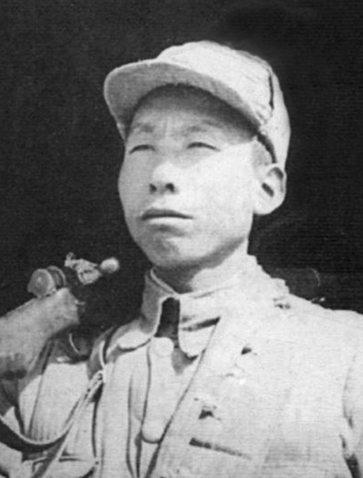
Wang Keqin. Courtesy of the Provincial Department of Veterans Affairs
Wang Keqin (1920-1947), a native of Fuyang County, Anhui Province. In October 1945, he joined the Chinese People's Liberation Army. In September 1946, he joined the Communist Party of China. Under the cultivation of the party and the people's army, he quickly grew into an excellent fighter who was brave and good at war. Starting from the Liberation War in June 1946, he killed and wounded 232 enemy soldiers, captured 14 people, captured 8 rifles, and made meritorious contributions 9 times, and was rated as a "first-class hero who killed the enemy" and "a model communist". In September 1946, he was promoted to squad leader. He inherited and carried forward the glorious traditions of the people's army, innovated and carried out the three major mutual assistance activities of ideology, technology, and life, which played a great role in enhancing the cohesion and combat effectiveness of the squad collectives. On October 6, 1946, in the battle of Xuzhuang in Juye County, Shandong, he led the whole class to fight with the Kuomintang army for a day, repelled several enemy attacks, annihilated a large number of enemies, and did not suffer any casualties in the whole class. After the war, the whole class was awarded the first class of collective merit, 3 people were rated as combat heroes, and Wang Keqin was appointed as a platoon leader. In December of the same year, his "three mutual aid" experience in leading soldiers was rapidly promoted throughout the army. On June 30, 1947, 120,000 people, the main force of the Jinji-Hebei Luyu People's Liberation Army, forcibly crossed the Yellow River and launched the Southwest Lu Campaign. At 19:00 on July 10, the 6th Column launched a battle to attack Dingtao City, and Wang Keqin led the whole platoon to take on the task of attacking the north gate of Dingtao. During the battle, Wang Keqin was seriously wounded, but still gritted his teeth and insisted on commanding the battle, leading the soldiers to bravely enter the city. In the early morning of the 11th, due to excessive blood loss, he died heroically.